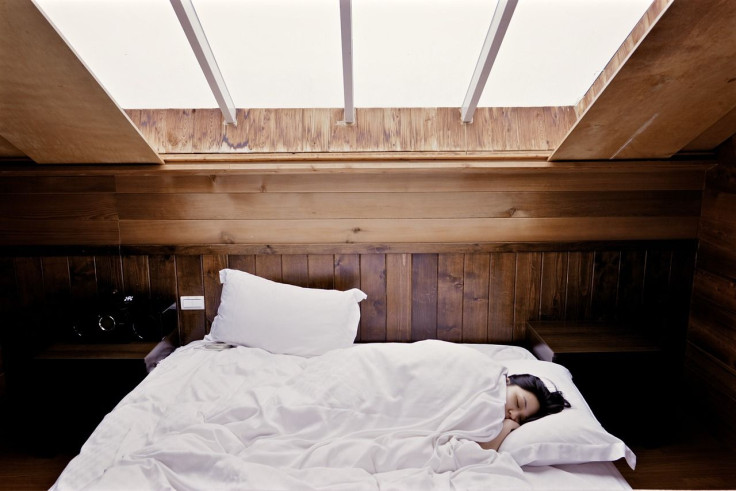Performing This Exercise Before Bedtime Will Help You Get A Good Night’s Rest

KEY POINTS
- Sleep problems are common among adults, with some of them finding it hard to get a good night's rest
- There are certain ways on how you can combat this trend and ensure that you get to sleep well
- By doing the right exercise, you may be able to say hello to a good night's rest
Data shows that one in every three people in the UK suffers from sleep deprivation, with those suffering from it resigned to the notion that their condition may be irreversible. While it is true that sleep loss may be difficult to overcome, studies have shown that it can be defeated by making simple lifestyle changes. Such changes can help bring normalcy back to your sleep-cycle. One lifestyle change that you may want to make is performing regular exercises.
Regular Exercise Helps
The National Sleep Foundation revealed that exercising regularly can reduce stress, one of the factors that can prevent you from sleeping soundly. Aside from stress reduction, regular exercise can also help improve sleep duration and quality.
Early morning and afternoon calisthenics can help reset your sleep-wake cycle by slightly raising your body temperature, then allowing it to fall down and trigger drowsiness after a few hours. The health body also said that exercising could be particularly helpful when done outdoors when your body can absorb natural sunlight during the daytime.
Best Exercise to Defeat Sleep Deprivation
In a study published by Sleep Medicine, performing aerobic exercises regularly helps defeat sleep deprivation and can have positive effects on your overall health. Aerobic exercises are activities such as cycling, running, swimming, or brisk walking, which gets your heart rate up.
The study examined the effects of aerobic exercises on middle-aged and older adults who have been diagnosed as suffering from insomnia. After performing a series of aerobic exercises regularly, they reported huge improvements in their ability to sleep better and longer as compared to those who performed other non-pharmacological interventions.
The senior author of the study, Dr. Phyllis Zee, M.D., revealed that sleep behaviors could dramatically change when you reach middle age. This is why, at this stage, it is important to identify some of the ways that can help improve sleep. Dr. Zee is the director of the Sleep Disorders Center at Northwestern Medicine.
According to Dr. Zee, the promising results of their study showed that performing aerobic exercises regularly is among the ways that could help you sleep better at night. It also helps you feel more energetic and vigorous the next day.
© Copyright IBTimes 2025. All rights reserved.





















